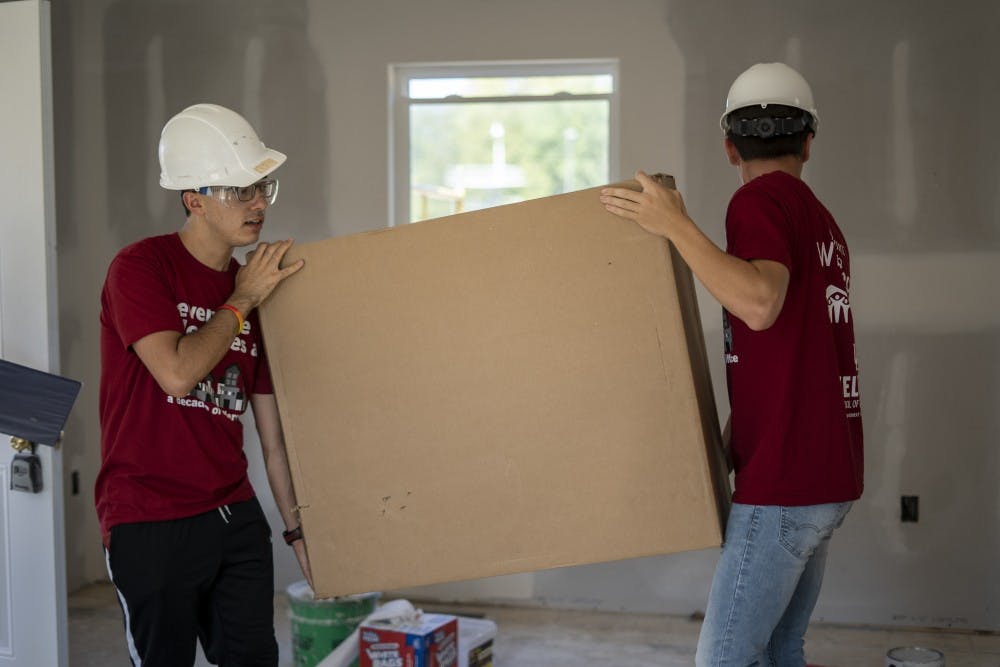Alice Wilmoth, a lifelong Bloomington resident, has never been to an IU football game. At the first one she’ll ever attend, she is receiving the keys to her new house on the field before the Homecoming game begins.
The 10th annual Habitat for Humanity build on IU’s campus began Oct. 1 and concludes Friday, starting with nothing and ending with a home for a family. This project is a partnership between Habitat for Humanity, the Kelley School of Business and the Kelley Institute for Social Impact.
The partnership is being sponsored by Whirlpool, a home appliance company whose former CEO, Jeff Fettig, was a Kelley School graduate.
“It’s a great way for students to give back to the community in a real tangible way,” said George Vlahakis, associate director of communications and media relations at the Kelley School. “Someone who is going to be living in a new home this winter as a result of all these students and faculty.”
The Kelley Institute for Social Impact recruited around 300 students, faculty and staff to volunteer to work on the project, said Shawna Meyer-Niederman, assistant director of the Institute for Social Impact.
The Kelley students and staff work with experienced crew leaders from Habitat for Humanity as well.
“We help provide the people power,” Meyer-Niederman said. “We couldn’t do this without Whirlpool, we couldn’t do this without Habitat, so we make a great team.”
She said since the late 90s, Whirlpool has donated a refrigerator and a range for every Habitat home built in America, including this one.
“This is our 10th house,” Meyer-Niederman said. “Both the Whirlpool Habitat Build and KISI are celebrating ‘a decade of difference’ this year.”
For the past week-and-a-half, volunteers come to the construction site — located at North Fee Lane and 17th Street — grab a hardhat, get a tutorial for their assigned task and get to work.
After the house is completed, Habitat for Humanity will move it to the permanent installation site at 15th Street and Lindbergh Drive and make additional installations before the new owners move in.
Those two owners, Alice and Bob Wilmoth, have been working on the house with other volunteers. The couple must complete 250 hours of “sweat equity” in order to receive the house. This includes hours working on the construction site as well as taking classes required by Habitat for Humanity, such as a required money management class that covers topics such as insurance and credit.
“The classes they make you take are just really life changing,” Bob Wilmoth said. “They’re things that I know that I never would have known had they not come along and told us.”
Wendi Goodlett, CEO of Habitat for Humanity of Monroe County, said in order to receive a house, applicants must have “unaffordable rent,” meaning 30% or more of their income goes to their rent. They must also have a willingness to partner and complete the hours.
“We have them so that they’re successful homeowners down the line,” Goodlett said. “We make sure that they are able to manage their money.”
She said for the people living in Habitat for Humanity houses, they have a less than 1% foreclosure rate.
“It’s a way of building self confidence in people, it transfers beyond other ways than being a homeowner,” Goodlett said. “That’s the great thing about building your own house, after that there’s not a lot you can’t do.”
CORRECTION: A previous version of this article included the wrong address for the installation site. The permanent site is 15th Street and Lindbergh Drive. The IDS regrets this error.




